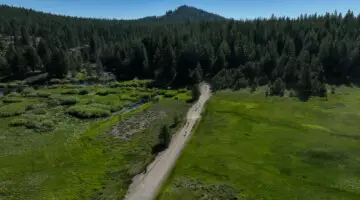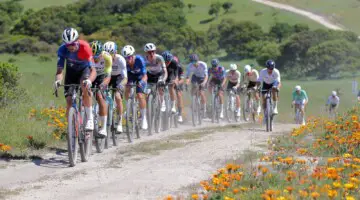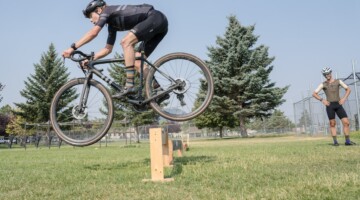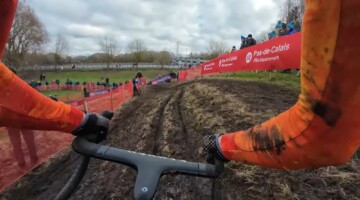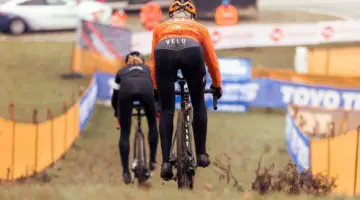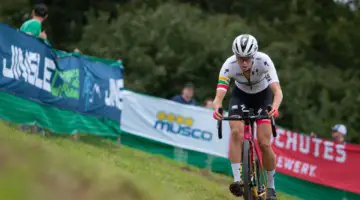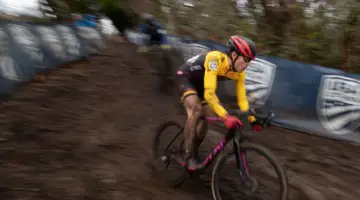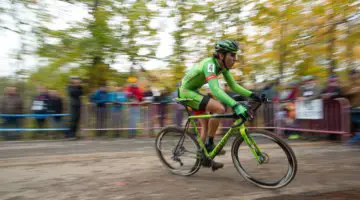Cyclocross practices are a great way to dust off the cobwebs, work on skills, get hyped for the upcoming season and make new friends. Our #crossiscoming series continues with a Training Tuesday column by Chris Mayhew about getting the most out of your ’cross practices this August.
I’ve been running our local practice for 12 years now. It’s modeled on what I’ve seen other people do and shaped by what we have to work with at our venue. All the inspiration to make it happen came from Marc Vettori.
With that in mind let’s talk about how to get the most out of one of your key training days.
First, find a practice!
I think ’cross practice is a key part of everyone’s cyclocross season. One of the first things I ask clients is “when is practice?” and I mold their week around it. If they don’t attend one, I encourage them to find one. It’s the rare athlete that can really go as hard alone as they would in a group. But even if you can pedal hard by yourself, almost no one will corner as hard alone as they would in a group or have to come into a section on a less-than-optimal line. And we all know cyclocross is more than making watts in a straight line.
’Cross is also about community, and hanging out with local, like-minded people is where that starts. There are so many soft skills and things learned from experience, and you can shorten up that learning curve quite a bit by hanging out with people who have a season or ten under their belts. You can even see this with pros and aspiring pros like JAM Fund. They practice in the dirt with friends to get sharper.
Second, bring a friend!
The more the merrier. Be an evangelist for the sport. The more fun it is the more likely you’ll want to come back. Someone new to the sport might not even be aware such a thing exists. So spread the word and be inclusive.
It’s okay for newcomers to try it out on a mountain bike or while wearing sneakers. We’ve had a wide range of bikes over the years including fat bikes, commuter bikes and a bike purchased on the way to practice.
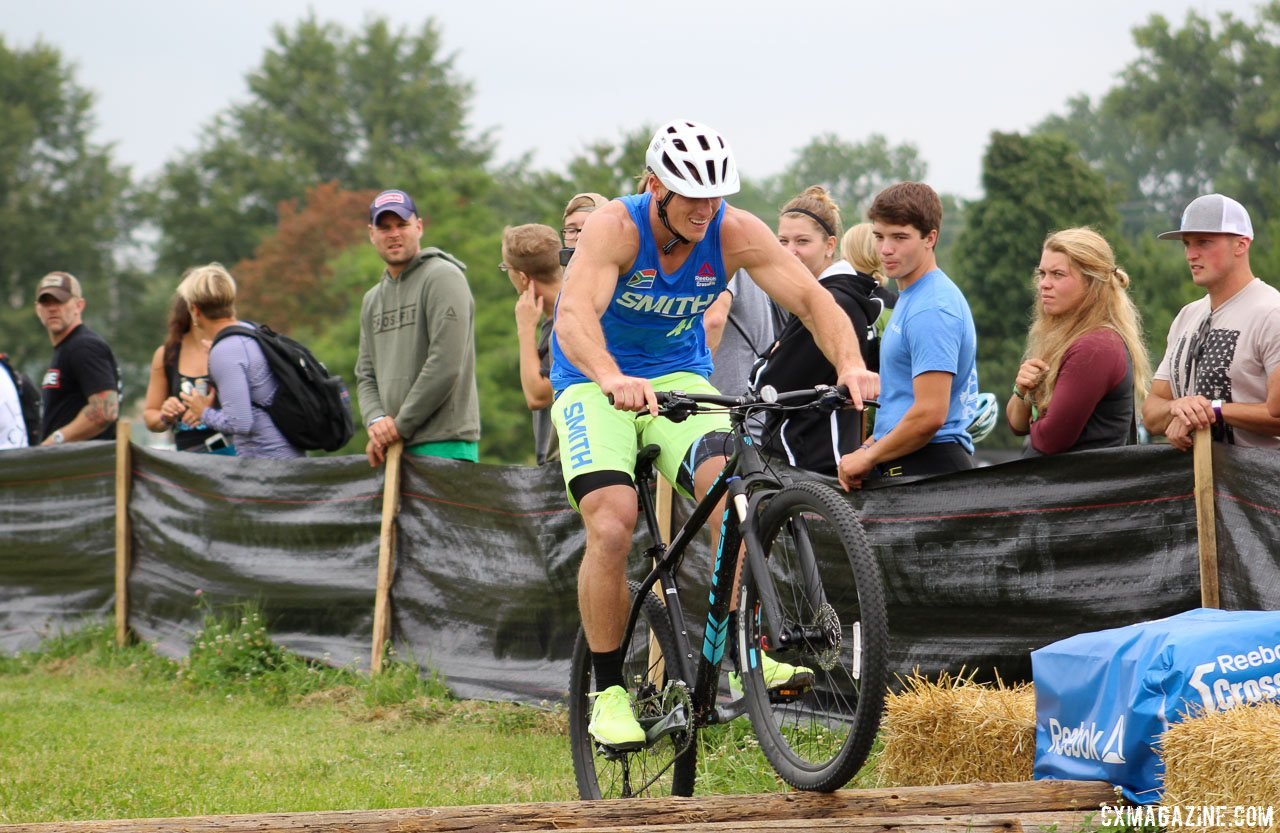
If newcomers only have a mountain bike, that’s totally okay. Cyclocross racing at the 2017 Crossfit Games. © Z. Schuster, Cyclocross Magazine
Do it right, not fast
When you’re fatigued in a race you’re going to fall back on muscle memory. So the more you’ve done something right, the easier it will be to perform properly while fatigued and under pressure.
Practice is a low-stakes environment, and you should have many chances to work on various skills. Make sure you’re doing them right, not just the fastest you can. I see people blaze through barriers with poor form. Break it down and do it right.
The other thing I see people do is dive-bomb for the inside of the first corner. Sure, you win the entrance to that corner, but over and over, you’re practicing taking an overall slower line. There’s more than one corner to a race, and winning the holeshot doesn’t matter all that much.
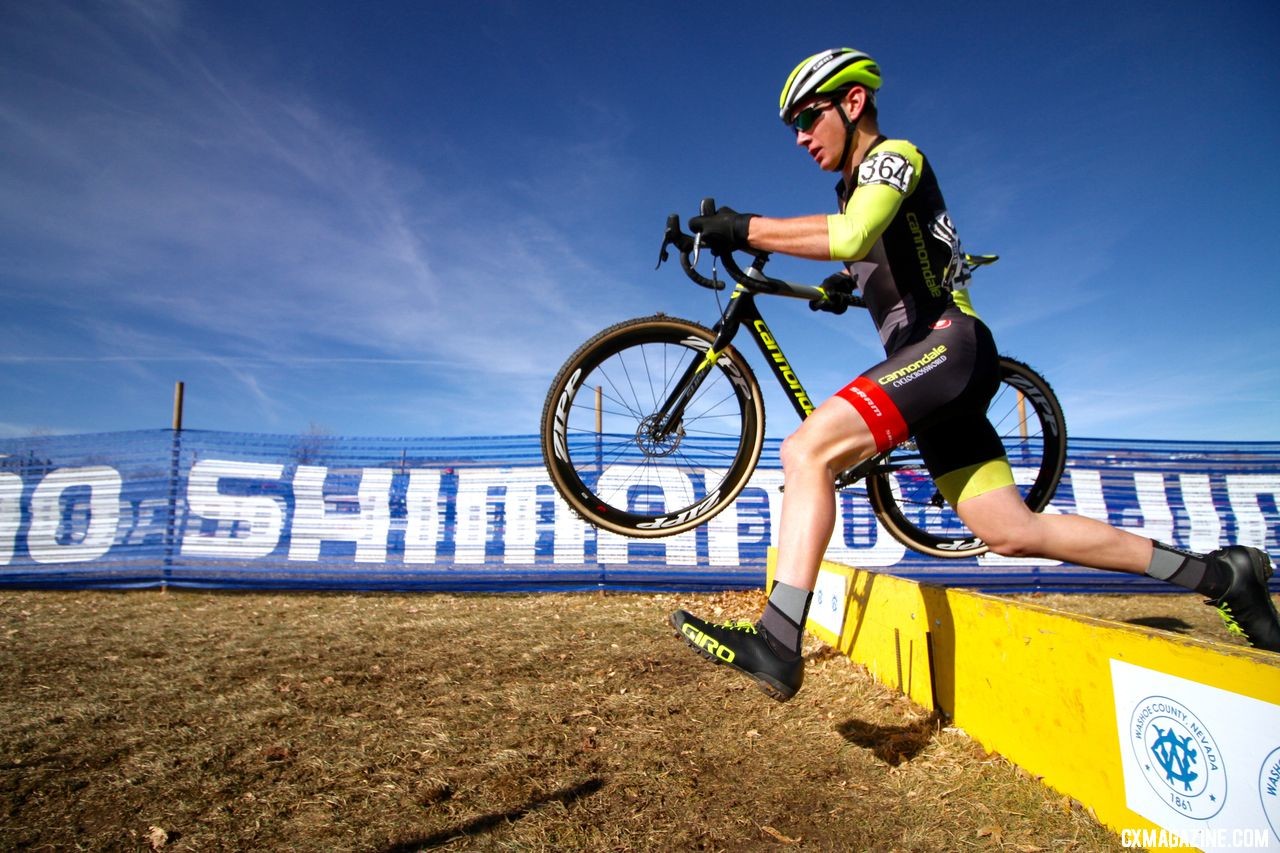
Work on doing skills right first, then do them faster. Junior Men 15-16. a2018 Cyclocross National Championships. © D. Mable/ Cyclocross Magazine
Set your ego aside
Practice is low stakes, but it’s also a competitive environment. I’ve seen and been a part of a lot of ego-driven behavior. Learn to set that aside. I have definitely pulled myself out of some hot laps when the urge to stick someone in the tape got a little too strong.
You’re there to get faster and make your friends faster, but don’t ever view them as competition. We’re usually laughing the whole way through a hot lap and it makes me really happy.
Help out
This is me preaching my own self-interest, I realize, but there’s also a point. If you want to show up to practice, go hard and go home, that’s great. Just being there is awesome.
But know that there’s at least an hour of work going into setting up practice (flags, barriers, etc). That doesn’t happen by magic. There’s always a small crew that shows up early to help us plant flags, and I’m eternally grateful for that. At the end of the night, I ask the crowd to help pick up flags and barriers (If you haven’t tried picking up flags while riding your bike, it’s a great skill builder). If you don’t do that, that’s fine. But realize practice might not be there one day due to burnout on the promoter’s part and any little bit you can contribute is ultimately in your own best interest.
In the end what you put into this sport, at any level, is what you’re going to get out of it. ’Cross, in particular, is very DIY.
Take a moment to enjoy it
I always make a point to look around and enjoy things for a moment. How cool is it that you get to hang out with your friends, go hard and do the thing you love?
Take a moment and appreciate it. It’s special and it might not always be there.
Ask questions
If you’re the smartest one in the room, you’re either in the wrong room or you have a bad attitude. There’s almost always something to learn from the people around you. And somebody at ’cross practice has probably already encountered and solved whatever problem you have. Ask around, keep an open ear and mind, and you’ll learn a lot.
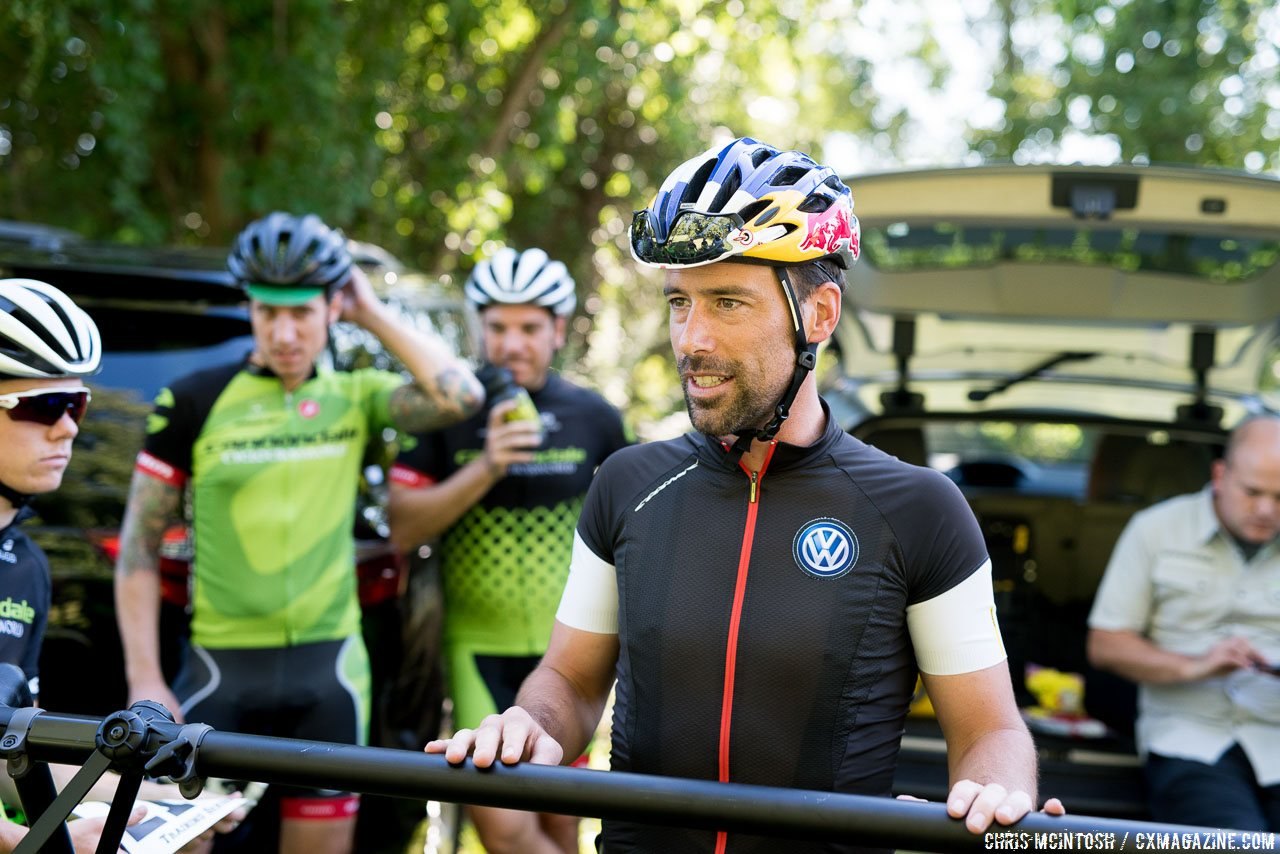
Ask questions of the coaches, you never know what you’re going to learn. © Chris McIntosh / Cyclocross Magazine
If you don’t have a practice, start one!
It’s what I did. And it was completely self-interested; I wanted a group I could train hard with to improve my skills. It has its own momentum and rewards now, but even still, that’s the primary reason I keep it going.
If you’re thinking about starting a local cyclocross practice, I would give you two tips. One, make sure the land use situation is sorted out. Every practice seems to run into that issue at some point, ours included. Second, make sure there’s a steady hand at the tiller. Every group activity I have ever done has been best when someone is pretty clearly in charge and everyone has a clear idea of what’s going to happen.
Cross practice is rad!
You can hang out with your friends and do ’cross things for free—or at a low cost! It’s a chance to work on all those skills that will pay huge dividends on the weekend. Keeping in mind a few simple tips will allow you to maximize what you get out of practice. Mainly it comes down to showing up, being a good person and making sure to hit the waffle stand (if you have one) on the way home.
For more training advice, see our Training Tuesday archives.






